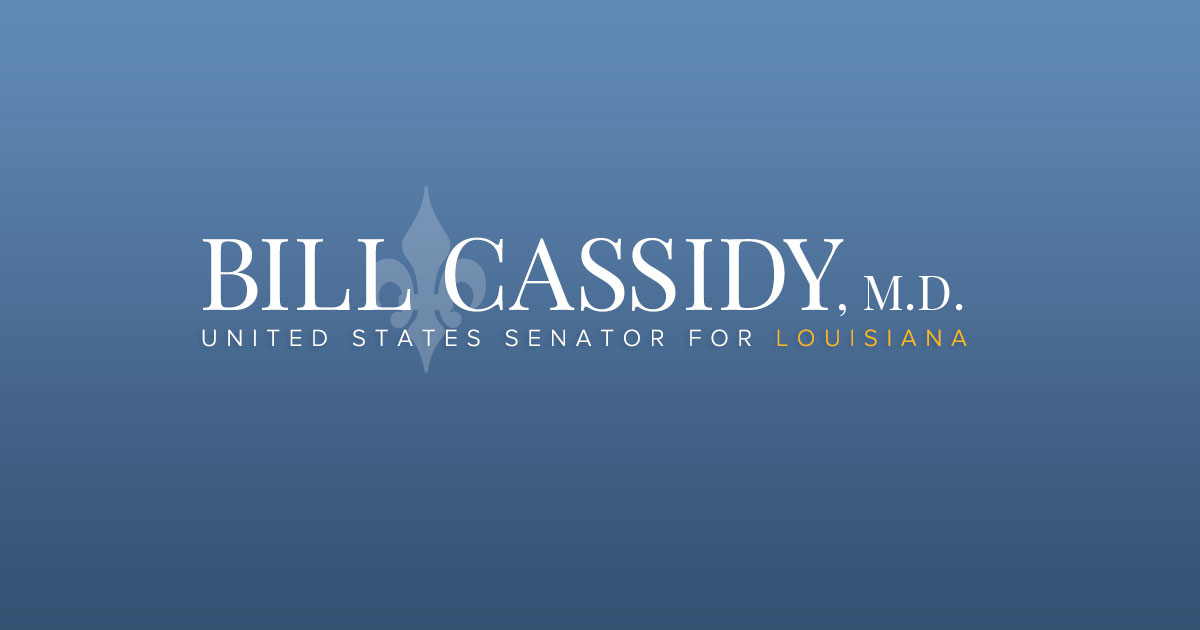Source: United States Senator for Louisiana Bill Cassidy
09.28.21
WASHINGTON – U.S. Senators Bill Cassidy, M.D. (R-LA), Marco Rubio (R-FL), Cindy Hyde-Smith (R-MS), and John Cornyn (R-TX) introduced the NFIP Risk Rating 2.0 Delay Act of 2021. The legislation would require the Federal Emergency Management Agency (FEMA) to delay its National Flood Insurance Program (NFIP) Risk Rating 2.0 rollout until September 30, 2022. The delay would prevent premium hikes from going into effect for homeowners and other policyholders, as well as to give lawmakers time to develop meaningful, sustainable reforms to the NFIP.
“These aren’t rich people Risk Rating 2.0 will hurt,” said Dr. Cassidy. “These are middle-income and working families who depend on the NFIP to recover after disaster. This bill does what the administration refuses to do: delay Risk Rating 2.0.”
Congress never passed a bill requiring that FEMA implement Risk Rating 2.0. It was a decision made by FEMA which gives President Biden and his administration the ability to stop it from going into effect without action from Congress.
Last week, Cassidy and Senator Bob Menendez (D-NJ) led a bipartisan group of colleagues urging FEMA to delay Risk Rating 2.0. They wrote that Hurricane Ida ravaged parts of Louisiana and New Jersey earlier this month, causing widespread damage and flooding. The storm lead to the deaths of at least 89 individuals, including 29 in Louisiana, and caused tens of billions of dollars in property damage. As hurricane season ramps up, Risk Rating 2.0 will leave flood providers overburdened with this added responsibility of learning a new, unfamiliar, and untested rating system.
This month Cassidy co-sponsored the National Flood Insurance Program (NFIP) Extension Act of 2021 to extend the program for one year, to September 30, 2022, with Senator John Kennedy (R-LA) and the NFIP Extension Act of 2021 to reauthorize NFIP through December 3, 2021 with Senator Rubio.
Cassidy also took to the Senate Floor speaking about the National Flood Insurance Program (NFIP), which is set to expire while it’s in the midst of rolling out new policy—Risk Rating 2.0—that will raise premiums for hardworking Louisiana families. In Louisiana, 80% of policyholders will see increases in the first year. He similarly made remarks to extend NFIP during a live unanimous consent motion for passage of continuing resolution from Senators Mitch McConnell (R-KY) and Richard Shelby (R-AL).
“The Biden Administration’s decision to move forward with implementing Risk Rating 2.0, in spite of the serious concerns my colleagues and I have voiced about its ability to do so in an organized manner, is concerning,” said Senator Rubio. “With 80 percent of Floridians and American policyholders projected to see increases in their flood insurance premiums, FEMA needs to be more transparent and ensure its rollout is as orderly as possible. The Senate should pass my bill to delay this new rating system while Congress develops meaningful solutions to put NFIP on track to fiscal sustainability.”
“Right now, areas of the nation, including Mississippi, are dealing with hurricane recovery on top of economic stressors like inflation,” said Senator Hyde-Smith. “There’s no question that more needs to be done to strengthen the solvency of the NFIP, but it would be a mistake for FEMA to rush the process and to push Risk Rating 2.0 on policyholders. As the Biden administration does not wish to do the right thing and pause 2.0, we offer this legislation to delay implementation to provide time for full congressional oversight.”
“Texans are still recovering from the pandemic, and thousands of families are struggling to make mortgage payments and keep food on the table,” said Senator Cornyn. “I urge FEMA to delay implementation of RR 2.0 to allow policy holders the opportunity to understand and react to how their rates will be affected by the new system.”
###
